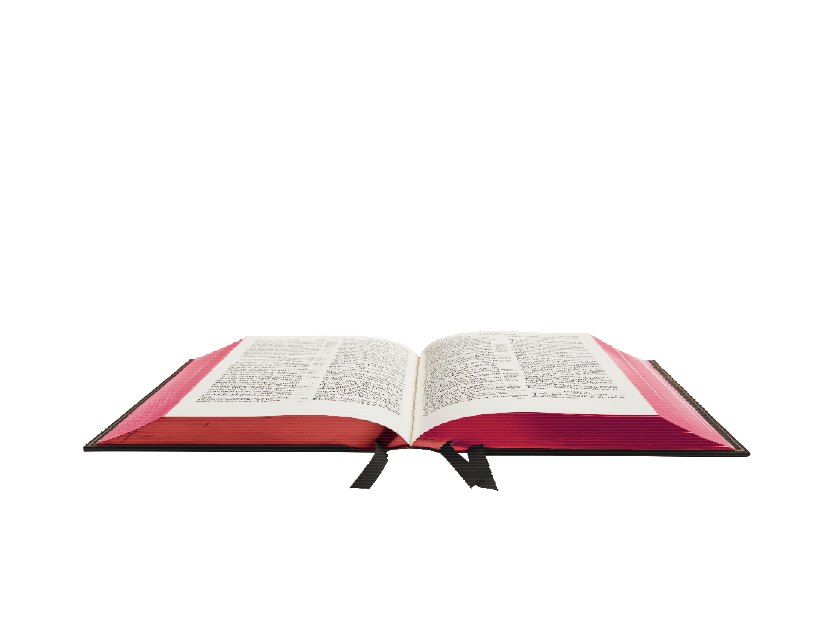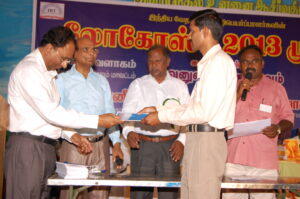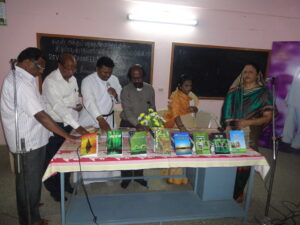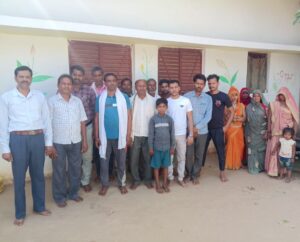Siddi Project
History of Siddi
Siddi populations have existed since the sixteenth and seventeenth centuries in Goa, Karnataka, Maharashtra and Andhra Pradesh, and in Gujarat for almost a millennium. Many came over as migrants or slaves from East and South-East Africa before establishing themselves as permanent diaspora communities within India. The estimated population of the Siddi community across India is 1.5 Lakhs. They follow Hinduism, Islam and Christianity.
Food Habits of Siddi People:
The Siddis are non-vegetarian. They eat buffalo meat, eggs, fish, fowl and goat meat. Bajri (spiked millet) and rice constitute their staple food. They consume all varieties of pulses like gram, Lur (pigeon pea), masur (lentils), etc. Groundnut oil is used as a cooking medium. They also consume roots and tubers, which they gather from the forest. They use all kinds of vegetables and fruits which are locally available to them. Consumption of milk and milk products is quite low among them.
Occupation of Siddi People:
Siddi people in India have a diverse range of occupations, primarily revolving around agriculture and resource gathering. Men often work as agricultural labourers, drivers, or in manual labour. Women may work on farms, collect firewood, and engage in domestic work. Some also work as bonded labourers or in seasonal jobs like construction or fishing. Additionally, Siddis may collect and sell minor forest products or engage in traditional crafts like basket weaving.
Siddi Culture
Social and Cultural Practices of Siddi People:
Siddis celebrate almost all the festivals of the Karnataka region, showcasing their cultural unity and integration into local society. Habash Festival is a significant annual festival organised by community organisations and supported by several groups. Almost all Siddis are devotees of the deity Yallamma. The percussive musical instruments known as the dammam, duf and gumte are popular among Siddi, both men and women, who also dance to the accompaniment of these instruments.
Beyond wedding ceremony practices, the Siddis bring their unique flavour of dance and music to their weddings. For example, drums are a significant part of the culture and can be traced back to their African roots. This will be on display during weddings with loud drums and dances, which include a noticeable ‘call and response’ technique. On some occasions, men and women together will form a circle and dance to the drums. A unique musical instrument used during celebrations is the Mashiro, which is a coconut shell used as the rattle, wrapped in green cloth (Bhatt). Another significant part of the African heritage kept by the Siddi is the visual arts. During weddings, women create patchwork quilts, known as Kawandis and are used in the home as mattress covers, given to daughters as a gift.
Education and Christianity:
The majority of Siddis are illiterate, and although the trend of sending children to schools has increased, the rate of school dropout is also on the increase.
The Christian population of Siddi people is 27.4%
IBT Translation Ministry among Bagheli People
Rev. Prof. Panneer Selvam had a vision to give the Bible in the Bagheli Language. He selected the Bagheli translator Mr. Srinivas Saket in 2011, and he underwent Bible Translation training for two months.
- The Gospel of Mark in the Bagheli language was dedicated and released by Rev. Robert Singh and received by IBT translator Mr. Srinivas Saket on 18.05.2013 in the IBT Logos Camp at Salem and distributed to the Bagheli-speaking people.
- The Gospel of Matthew and John in the Bagheli language was dedicated and released by Rev. John Timothy on 02.06.2016 on the Third Memorial Day of Late Rev. Prof. Panneer Selvam, Founder of IBT in Centre, Coimbatore and distributed to the Bagheli-speaking people.
- The New Testament in the Bagheli language is proposed to be released in 2026. The exegetical checking is in progress.
- Financial support of Rs. 1,80,000/- is required to print 1000 copies, which costs Rs. 180/- per Bible approximately.

Indian Bible Translators
14 Ashok Layout,
Civil Aerodrome Road,
Coimbatore – 641 014
- 90470 57414
- 90470 57414
- 0422 - 4520123
- info@ibtword.com
- indianbibletranslators@gmail.com
- Privacy Policy
Donate now by scanning our UPI QR code
through your payment apps.

© Copyright IBT | Designed and Developed by Pixtornet



